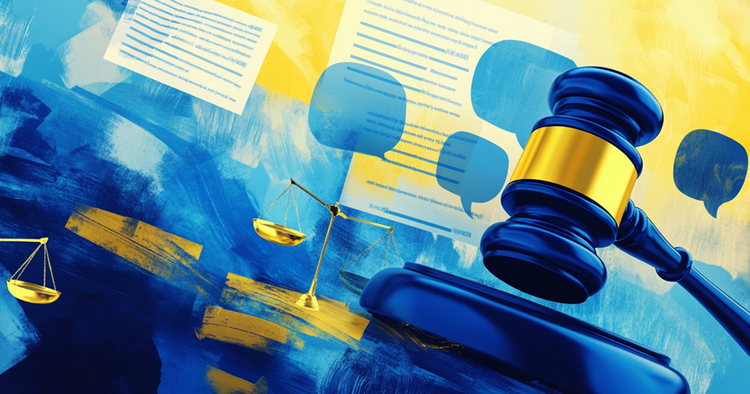California's Court Reporter Crisis Hits the High Court: Will Tech Finally Get a Seat at the Table?

California’s justice system has been treading water for years, clinging to tradition while the tide of court reporter vacancies continues to rise. Now, the California Supreme Court is stepping in. Soon, the justices will hear a case that could decide whether audio recording devices—long barred from many courtroom proceedings in the state—can be used to document hearings when no certified reporter is available.
This is a high-stakes moment—not just for the litigants whose rights are at risk when no transcript exists but for the entire legal system grappling with a chronic shortage that shows no sign of slowing. The question on the table isn’t just about equipment. It’s about how far the courts are willing to go to modernize when the old ways no longer meet the moment.
The Human Cost of the Shortage
The numbers alone are stark: California courts are short 458 full-time court reporters—a deficit directly impacting families, litigants, and attorneys statewide. This isn’t some abstract staffing issue. It’s why hearings are postponed, transcripts are delayed, and civil cases are stalled for weeks or longer in some counties. In fact, 72% of probate, family law, and unlimited civil hearings have no verbatim record as of December 2024.
For litigants, the impact is deeply personal. Survivors of domestic violence have had restraining order hearings delayed for weeks. Tenants in eviction cases have been left without transcripts to appeal unfavorable rulings. Family law litigants, many of whom represent themselves, are finding it increasingly difficult to secure a record of their hearings—an essential safeguard if they want to contest a decision or assert their rights later.
Legal aid organizations, including Community Legal Aid SoCal and the Family Violence Appellate Project, have raised alarms for years. Without a reliable record, due process itself is at risk. And as usual, the burden doesn’t fall evenly. Low-income Californians, non-English speakers, and those navigating the system without an attorney are most likely to be caught in the gap.
How the Legal Industry Got Here
This shortage didn't catch the legal community off guard. The warning signs were clear over a decade ago: a growing number of court reporters approaching retirement, fewer new professionals entering the field, and limited public funding to support recruitment or training programs.
Court reporting remains a demanding profession requiring specialized skills, but the industry has shifted dramatically. Private sector opportunities often offer more flexibility and higher pay (sometimes 30-50% more), making it difficult for the courts to compete. Meanwhile, the specialized education required—including a skills test with only a 36% pass rate—has created a significant barrier to entry. At the same time, legislative hesitance around adopting digital alternatives has slowed the development of viable contingency plans.
The result is a perfect storm: an increase in legal proceedings meets a shrinking workforce. What began as a staffing challenge has become a fundamental question about court operations and access to justice.
Why Tech Is on the Table
The California Supreme Court is weighing a narrow but significant change: Should courts be permitted to rely on high-quality audio recordings—with transcripts created afterward—when a certified court reporter isn’t available?
Supporters see it as a practical step in a system struggling to meet demand. But the pushback is real, coming from people with deep knowledge of the courtroom. Court reporter organizations and labor advocates have raised alarms about what’s at stake. They point to serious concerns around accuracy, privacy, and the erosion of a highly specialized profession. Transcripts can shape appeals, impact outcomes, and hold powerful institutions accountable. Getting them wrong isn’t a minor risk.
Still, it’s hard to ignore what’s already working elsewhere. Digital tools are becoming more secure, AI transcription is increasingly reliable, and hybrid models—with human review baked in—are gaining traction nationwide. The legal system may be slow to adapt, but the pressure to evolve is only intensifying.
More Than a California Issue
The court reporter shortage extends far beyond California. While Texas courts fall behind on hearings and Florida scrambles to fill vacancies, each state faces its own version of the same problem: demand remains high while the qualified workforce continues to shrink by 10-15% annually through retirements and career changes.
The numbers may vary, but the pattern doesn't: the traditional pipeline of trained professionals cannot keep pace with current needs. And while each state's court system makes its own rules, California often sets precedents that influence national practices. A green light from its Supreme Court could signal to other states that it's time to adapt.
However, the legal industry has seen this kind of change before. Exhibit sharing used to require binders and courier services. Remote testimony was a logistical headache until suddenly, it wasn’t. Capturing the official record may be next in line for overdue innovation.
Where Legal Tech Providers Can Make a Difference
When certified court reporters are available, there’s no substitute. But across California and beyond, availability is becoming the exception, not the rule, and that’s where legal tech can responsibly step in.
Technology isn’t a cure-all, and that shouldn’t be the expectation. But when hearings are delayed, or records go uncaptured, the question becomes less about preference and more about access. Legal tech providers are developing tools that support and enhance the current system, with layers of security, growing accuracy, and workflows designed for review.
Prevail is leading this transition with our comprehensive digital court reporting platform. Unlike basic recording tools, Prevail's solution combines high-definition audio recording technology with AI-powered transcription that achieves remarkable accuracy. What truly sets the platform apart is our human-in-the-loop verification system, where trained legal professionals review AI-generated transcripts to ensure court-ready accuracy.
Most importantly, Prevail's approach doesn't aim to replace court reporters but rather to supplement their invaluable work when unavailable. The goal isn’t to automate justice but to make it accessible.
What Path Should the Industry Take?
The California Supreme Court isn’t just weighing a procedural matter—it’s standing at a crossroads. Court reporters remain indispensable where available; their expertise is unmatched and irreplaceable. But ignoring the gap left when they’re not is no longer an option.
This decision will shape how records are captured and send a message about how far courts are willing to go to meet people where they are and how long they’re willing to let the system stall without a long-term solution.




